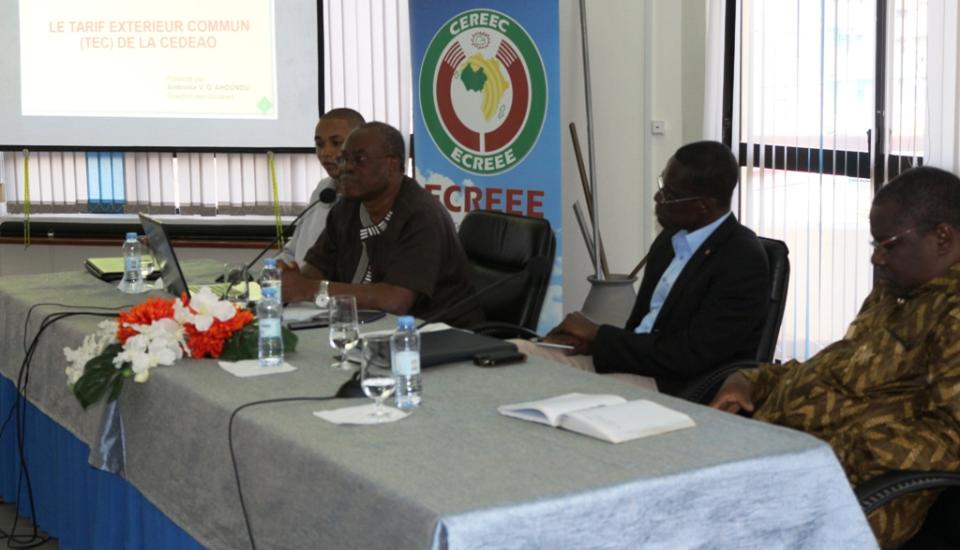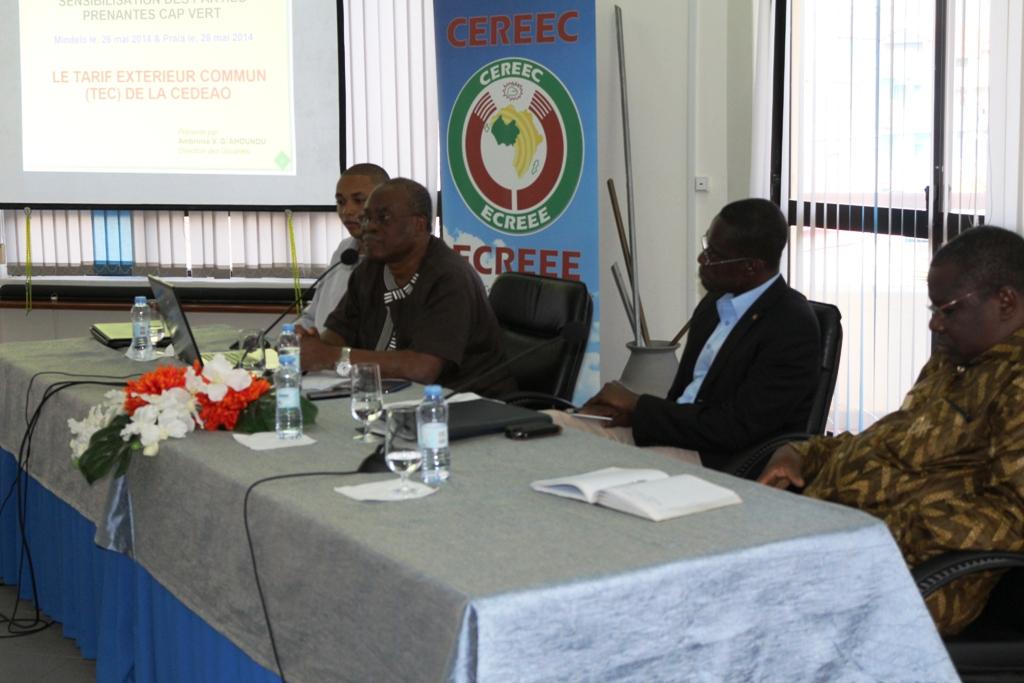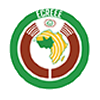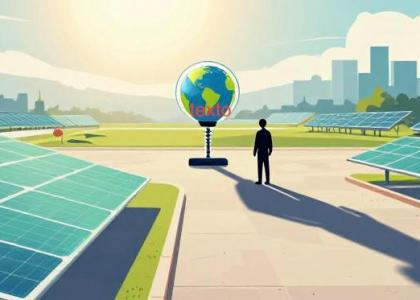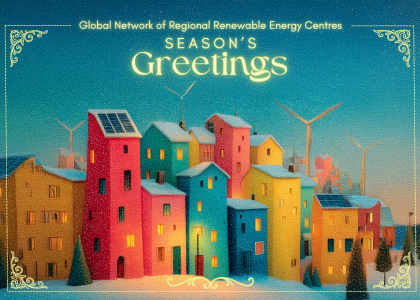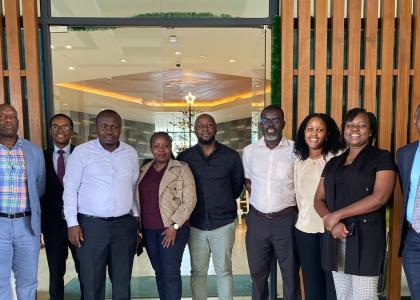The ECOWAS Centre for Renewable Energy and Energy Efficiency (ECREEE) in collaboration with the Cabo Verde Ministry of Foreign Affairs, the West African Institute and the Platform for African Communities Resident in Cabo Verde, recently commemorated ECOWAS Day with a workshop on Regional Integration.
The event was held on May 28th 2014 under the theme “Public Awareness on the ECOWAS Common External Tariff dubbed ECOWAS CET and Dynamics of Negotiations of the Economic Partnership Agreement between West Africa and the European Union". These two issues according to officials are of great importance to the sub-region in general and Cabo Verde in particular, especially in the context of regional integration. The one day forum, which took place at the Cabo Verde ministry of Foreign Affairs, informed the economic operators and the general public about the structure, the date set for the implementation of the ECOWAS CET and the challenges ahead.
The meeting also aimed at promoting awareness on the main aspects of the CET, which includes the point of convergence and the dynamics of negotiations of the Economic Partnership Agreement between West Africa and the European Union. The workshop generally availed ECOWAS officials the opportunity to share with partners including the civil society, all what is being done at the level of these negotiations, in order to collect appropriate subsidies for effective and efficient regional integration through ECOWAS. Participants at the forum also discussed several issues pertinent to the welfare of the ECOWAS community such as “The role of the Platform of African Communities (PCA) in regional integration, the role of the Centre for Renewable Energy (ECREEE) in Regional Integration and the Dynamics of the Economic Partnership Agreement between West Africa and the European Union amongst others”.
In his presentation a representative of the Platform of African Communities, Tony Parker Danso, highlighted the role PCA has been playing towards Regional integration. The House of African Communities / PCA Headquarters - has been instrumental in the integration of immigrants and in promoting cultural diversity, understanding, tolerance and dialogue amongst people of the sub-region. The PCA, according to Parker Danso, seeks to bridge the gap between Cabo Verde and the rest of the African continent, particularly the west African sub –region. Mr. Parker who is also the Honorary Consul of Ghana to Cape Verde informed the gathering that at a recent meeting of all Diplomatic Missions accredited to Cape Verde, he had suggested to the countries - through their Ambassadors - whose citizens reside in Cabo Verde, to establish some physical representation in the country.
Parker Danso also stressed the need to export Cabo Verde’s " best practices " and " know-how " in the area of good governance, public affairs management, the rule of law, democracy, to the entire sub -region and called for the involvement of immigrants in the Development of Cape Verdes Immigration Policies, sensitization of foreigners on the country's immigration laws and facilitation of meetings between immigrants and relevant authorities. He also revealed that plans are at an advance stage for the establishment of “sister-city relationship” between some cities and municipalities in Cabo Verde with those in the sub -region. “As part of the integration process, the PCA is collaborating with the Cabo Verde Chamber of Commerce in promoting trade between CV / ECOWAS and the expansion of Cabo Verdean companies to the region” said Parker.
He however pointed out as a challenge the lack of means for preparing an elaborate database of immigrants in the country and becoming a member of the Network of NGOs in the sub region as some of the challenges his office is poised to take up. He concluded by thanking the staff of the Cabo Verde Ministry of Foreign Affairs for hosting the event and lauded ECREEE’s Communication Manager for the initiative as well as for having collaborated with the PCA since its creation in May 2009.
Also speaking at the forum, a Renewable energy expert at ECREEE, Eder Semedo, dilated on “The Role of ECREEE in Regional Integration, through a power-point presentation. He informed the meeting that ECREEE’s programs and activities have been contributing to regional integration with emphasis on Renewable Energy and Energy Efficiency sector. Mr. Semedo described access to financial institutions and technology as some of the major constraints hindering the effective implementation of their energy programs. Semedo further highlighted the goals for Renewable Energy which include increasing their powers and capabilities, in order to improve Energy Efficiency in the ECOWAS region to international level by 2020 specifically through eradicating incandescent bulbs in 2020, promoting universal access to improved stoves, safer, clean, affordable and sustainable by 2030 within the ECOWAS community, Reducing losses in distribution networks of electricity from the current values of 15 % to 40 % to below 10% in 2020 and creating instruments for financing sustainable energy.
Dr. Antoine AGBADONE in his presentation on " Dynamics of Negotiations of the Economic Partnership Agreement between West Africa and the European Union, dilated on the EPA process and highlighted some key aspects contained in the Economic Partnership Agreement between West Africa and European Union and more specifically the general provisions contained in this Agreement, the provision of market access, and the financing thereof. He also discussed some consensual provisions of the Agreement, such as the ban on new duties or export taxes or increasing existing except in exceptional cases. Regarding the provision of market access, Dr. AGBADONE highlighted some consensus reached between the parties on the opening of markets specifically: Why Part of the European Union at 100%, with the entry into force of the Agreement, except for a transition period for some products, amongst others.
Dr. Ambroise AHOUNOU in his presentation on the theme "Common External Tariff (ECOWAS CET)" highlighted some important steps taken over the years of implementing the process. “This process is important and decisive for the creation of a customs union and an effective economic integration in the ECOWAS Member countries” he said. According to Dr. Ambroise Session 70 of the Ordinary Council of Ministers of ECOWAS in Abidjan adopted six key regulations that allow the implementation of the ECOWAS CET namely:
• Regulation on the application of taxes on the finished product;
• Regulation on customs valuation system ECOWAS;
• Safeguard and protection against the effects of a massive importation of regional production Regulation;
• Regulation on anti - doping measures to remedy the harm resulting from imports subject of doping;
• Regulation on compensatory measures to protect against the effects of imports of subsidized products;
• Regulation on measures of additional supplementary protection.
He further stated that the architecture/structure of TEC comprise four categories of goods and products with rates between 5 to 35%. Dr. Ambroise added that the ECOWAS CET has also benefited from the support of the World Trade Organization and the World Customs Organization. He noted that the establishment of an ECOWAS CET, requires standardization of taxes and ports to ensure the same level of tariff treatment of goods imported from third countries. The meeting recommends public sensitization on the EPA between West Africa and the European Union with a view to conclude the negotiations, if possible before 1st October 2014, safeguard the consensus achieved so far, avoid the implementation of the two interim EPAs in Côte d'Ivoire and Ghana, create an ad - hoc committee to review and monitor the implementation process of the EPAs and product certification by the ECOWAS member countries.
The forum also underscored the need to integrate TEC with the financial laws of the Member States and effective enforcement by Customs, adapt some tax instruments of ECOWAS, greater involvement of VC in drafting legislation that will regulate the TEC and translate and edit in the three official languages of ECOWAS. According to officials, these agreements will in principle be in force as of January 1st, 2015.

